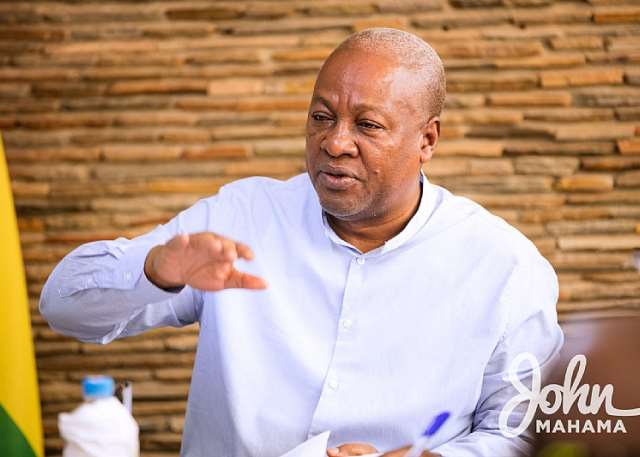The National Democratic Congress (NDC) led by former President John Dramani Mahama has unveiled an ambitious educational reform agenda in its 2024 manifesto titled “Resetting Ghana: Jobs, Accountability, and Prosperity.” As the presidential candidate for the upcoming 2025 elections, Mahama emphasizes a collaborative approach with stakeholders to comprehensively overhaul the educational system. He outlines several key initiatives designed to improve infrastructure, teacher welfare, and overall investment in education, with a central focus on achieving quality outcomes for students. A notable feature of this proposed educational framework is the introduction of the ‘Bright Beginnings Initiative,’ which aims to enhance early childhood education and ensure children transition smoothly into primary school and beyond.
The ‘Bright Beginnings Initiative’ is intended to revitalize early childhood education in Ghana. It is backed by a proposed operational policy to incorporate early childhood education into the basic education system, supported by appropriate infrastructure. Furthermore, Mahama plans to establish a Department for Early Childhood Development within the Ministry of Education to focus specifically on improving early educational frameworks. The initiative promises the creation of a National Edu-Care Programme (NEP) that would facilitate the establishment of early learning facilities in workplaces, thereby supporting working parents. The introduction of Ghana Pre-schools Online (GPO), aimed at enhancing literacy and numeracy through multimedia tools, illustrates a modern approach to early education.
Mahama acknowledges the importance of curriculum development in early childhood education. He has pledged to review existing curricula to create a national value-based curriculum that not only enhances psychomotor skills but also imparts basic life skills to children. This effort will also include measures to improve the pupil-to-textbook ratio significantly. Additionally, comprehensive professional development programs for early childhood educators are planned to ensure that teachers are equipped with the necessary skills to deliver high-quality education. Another integral component of this initiative is the commitment to promoting the use of first languages (L1) in early education settings, which would make learning more relevant and meaningful for children.
Addressing the fundamental goal of providing free compulsory universal basic education (FCUBE), Mahama’s administration will prioritize investments in basic education to enhance both access and quality. To this end, the introduction of a ‘SmartStart Curriculum’ stands out, as it aims to incorporate Science, Technology, Engineering, and Mathematics (STEM) alongside skills like Coding and Digital Literacy into the basic education framework. The push for infrastructure development includes the ‘Furniture for All Initiative,’ aimed at combating the acute shortage of furniture in schools, which will involve collaboration with local carpentry and furniture trades.
Mahama has emphasized the need for improved learning conditions to tackle the alarming trend of schools operating under trees and the challenge of dilapidated school structures. His agenda includes increasing the regular payment of capitation and feeding grants to schools and facilitating the introduction of solar energy as a primary power source. Furthermore, Mahama plans to enhance digital literacy by equipping schools with computer facilities and upgraded ICT laboratories. This initiative illustrates the NDC’s commitment to integrating modern technology and teaching methodologies into the educational framework, which is crucial for equipping students with contemporary skills required in a fast-evolving job market.
Lastly, the proposal to promote indigenous languages is set to play a significant role in the upcoming educational reforms. The Mahama administration aims to provide scholarships to encourage the training of more Ghanaian language teachers while restructuring the Bureau of Ghanaian Languages to standardize language development. This plan includes a focus on research and scholarship in the realm of Ghanaian languages, prompting a more significant appreciation and use of these languages within the educational system. By promoting the incorporation of digital content in first-language curricula and enhancing teacher training, the NDC aims to support cognitive development and cultural cohesion among students, ensuring that education fosters both national identity and social coherence.














